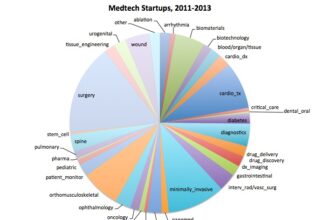 I suspect many people would answer that question with, “Yes, in a heartbeat!” They might consider the perceived status, the opportunity to help others, and what is ar
I suspect many people would answer that question with, “Yes, in a heartbeat!” They might consider the perceived status, the opportunity to help others, and what is ar
 I suspect many people would answer that question with, “Yes, in a heartbeat!” They might consider the perceived status, the opportunity to help others, and what is arguably a very good income. These and other reasons might make a person want to trade places. But what is it really like to be a physician these days? And if you were able to walk a mile in their shoes, would you really be so willing to trade places?
I suspect many people would answer that question with, “Yes, in a heartbeat!” They might consider the perceived status, the opportunity to help others, and what is arguably a very good income. These and other reasons might make a person want to trade places. But what is it really like to be a physician these days? And if you were able to walk a mile in their shoes, would you really be so willing to trade places?
I’ll be perfectly honest. I haven’t practiced medicine for more than a dozen years. But I did practice in a variety of settings for nearly 20 years, and many of my current friends and colleagues are still practicing physicians. Whenever I’m having a bad day in the corporate world of technology, I often think of my colleagues who remain in the trenches of patient care and all of the challenges they must meet in caring for their patients.
First of all, let’s be cognizant of how many years of training are needed to become a physician. After four years of undergraduate college, becoming a doctor requires 4 years of medical school followed by at least 3 or 4 more years of residency. Some residency programs for medical specialties are twice that long. Consider for a moment the investment that represents. Many docs fresh out of medical school are carrying educational debt that exceeds the cost of the average house.
Once one becomes a physician, keeping up with the exponential growth of medical knowledge is a huge challenge. In addition, physicians are now dealing with a patient population that has 24 x 7 access to health information on the web. It seems everyone is now an “expert” on their own disease. Physicians must also meet hundreds of hours of continuing medical education requirements every few years in order to maintain a medical license to practice. Many docs also have to take expensive examinations every few years to remain certified in their specialty.
 If that weren’t enough, physicians are also being asked to digitize their work using costly, and often confounding, electronic medical record solutions. In the US, approximately 80 percent of doctors are now using an electronic medical record (EMR) of one kind or another. The growth in EMR use in the US has been stimulated by the American Recovery and Reinvestment Act of 2009. Physicians (and hospitals) can receive federal funding assistance to purchase and implement EMR solutions provided they are able to demonstrate “meaningful use” of an EMR according to guidelines provided by federal agencies. “Attesting” to meaningful use has become an exercise much akin to filing a federal tax return. It takes a lot of time and effort in an industry that is already stressed with too many things to do.
If that weren’t enough, physicians are also being asked to digitize their work using costly, and often confounding, electronic medical record solutions. In the US, approximately 80 percent of doctors are now using an electronic medical record (EMR) of one kind or another. The growth in EMR use in the US has been stimulated by the American Recovery and Reinvestment Act of 2009. Physicians (and hospitals) can receive federal funding assistance to purchase and implement EMR solutions provided they are able to demonstrate “meaningful use” of an EMR according to guidelines provided by federal agencies. “Attesting” to meaningful use has become an exercise much akin to filing a federal tax return. It takes a lot of time and effort in an industry that is already stressed with too many things to do.
Then there is the matter of Health Reform and all the changes, current and forthcoming, to the way physicians will be paid in this country. It is anticipated that the healthcare industry will transition from a volume-based (fee for service) system to a value-based (payment for quality and outcomes) system. All that is well and good. I want my physician to keep me healthy, not just treat me when I get sick. I also want to know that he or she is practicing with the highest quality top of mind. None-the-less, I sympathize with my physician colleagues during this time of payment transformation just as I feel their pain over the EMR and how it can be so disruptive to clinical workflow, at least initially.
 Speaking of payment transformation, have you ever considered how long it takes your physician to get paid? While physicians face spiraling increases in their costs of doing business (employees, equipment, supplies, office rents, and more) it seems it is taking longer and longer for them to get reimbursed for the services they provide.
Speaking of payment transformation, have you ever considered how long it takes your physician to get paid? While physicians face spiraling increases in their costs of doing business (employees, equipment, supplies, office rents, and more) it seems it is taking longer and longer for them to get reimbursed for the services they provide.
For instance, I get health insurance through my employer. As part of that insurance plan, I must contribute to and manage a Health Savings Account. When I see my doctor, a bill gets generated and goes to my insurer. They determine what, if any part of my bill they are going to pay. Within 30 days or so, I get an “explanation of benefits” form showing what has been paid (usually far less than the actual charge due to negotiated rates) and what I owe. I am then instructed to wait until I receive a bill from my doctor before paying that bill through my Health Saving Account. Even when everything works smoothly, it takes about 90 days for all this to happen and sometimes longer. Meanwhile my physician waits and waits, and although I try to pay my bills on time, you can bet there are plenty of people who drag their feet for as long as possible before paying their physician. With more and more healthcare costs shifting to patients, even for those who have insurance, the physician will be waiting even longer to be reimbursed for services rendered. Doctors who see Medicare patients sometimes wait 6 to 12 months to get paid. Who would put up with that?
So the next time you see your doctor, show him or her a little sympathy. These are challenging and uncertain times for many healthcare professionals. And if your doctor happens to be using an electronic medical record during your care, compliment him for taking the plunge and perhaps say “thank you for all that you do”. It’s not easy being a doctor these days.







